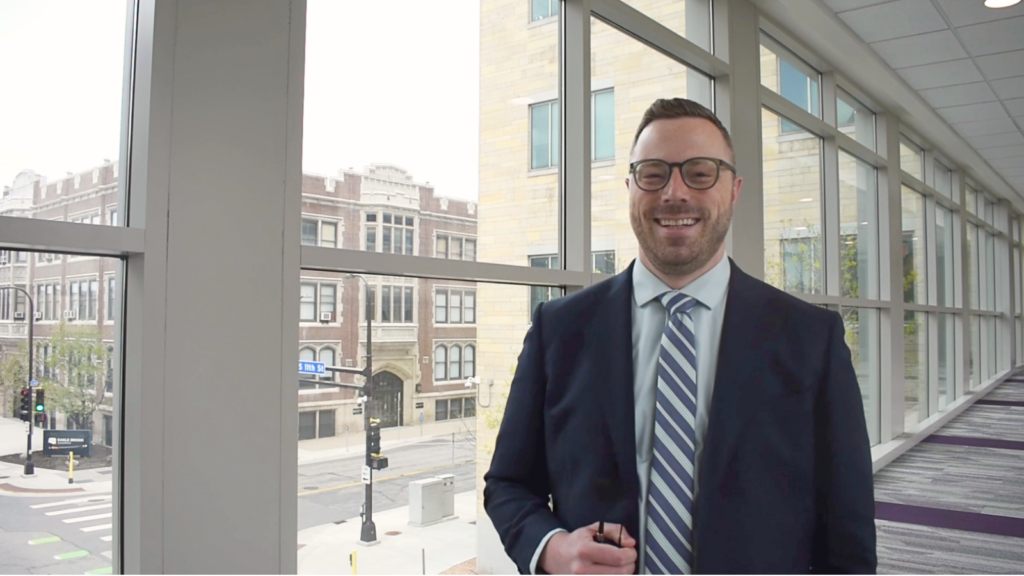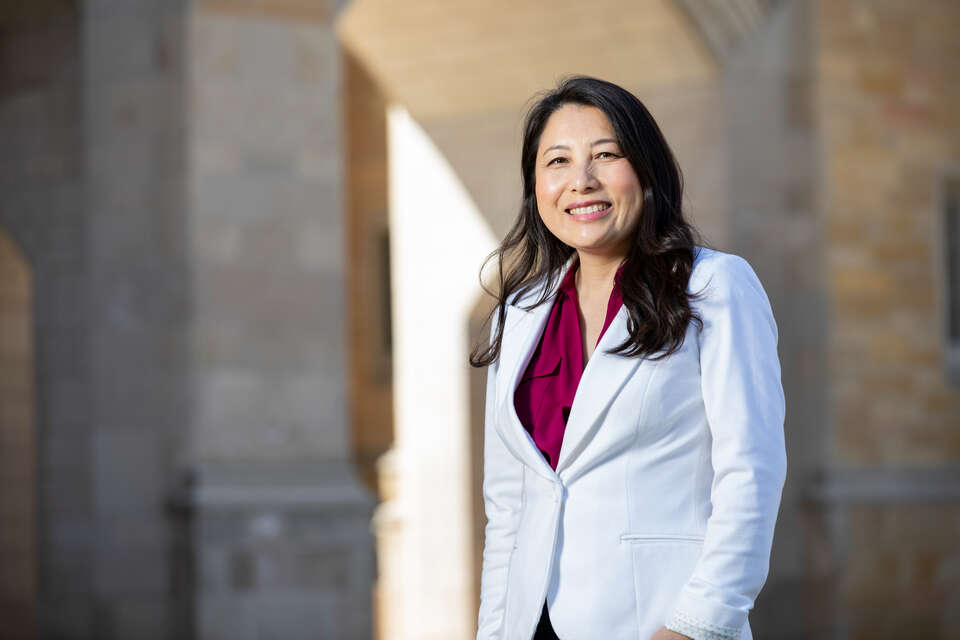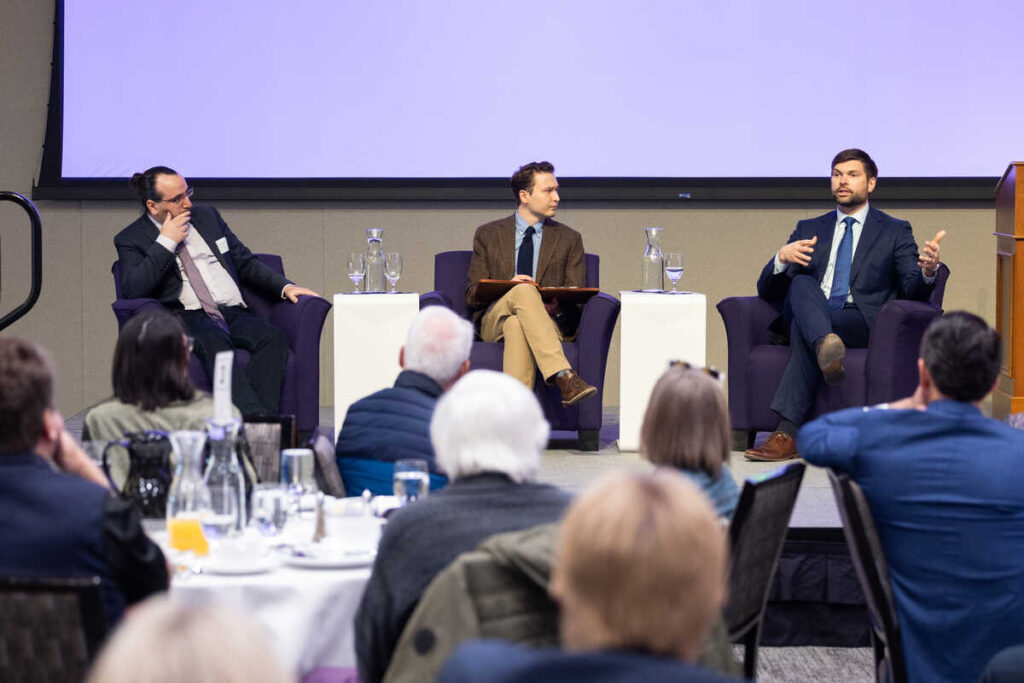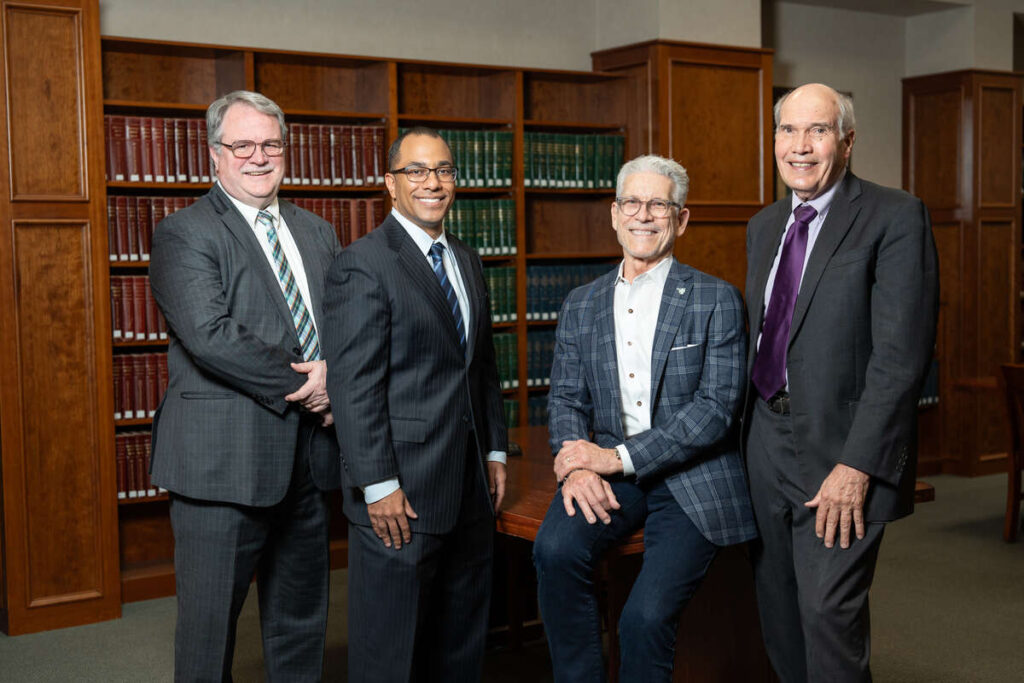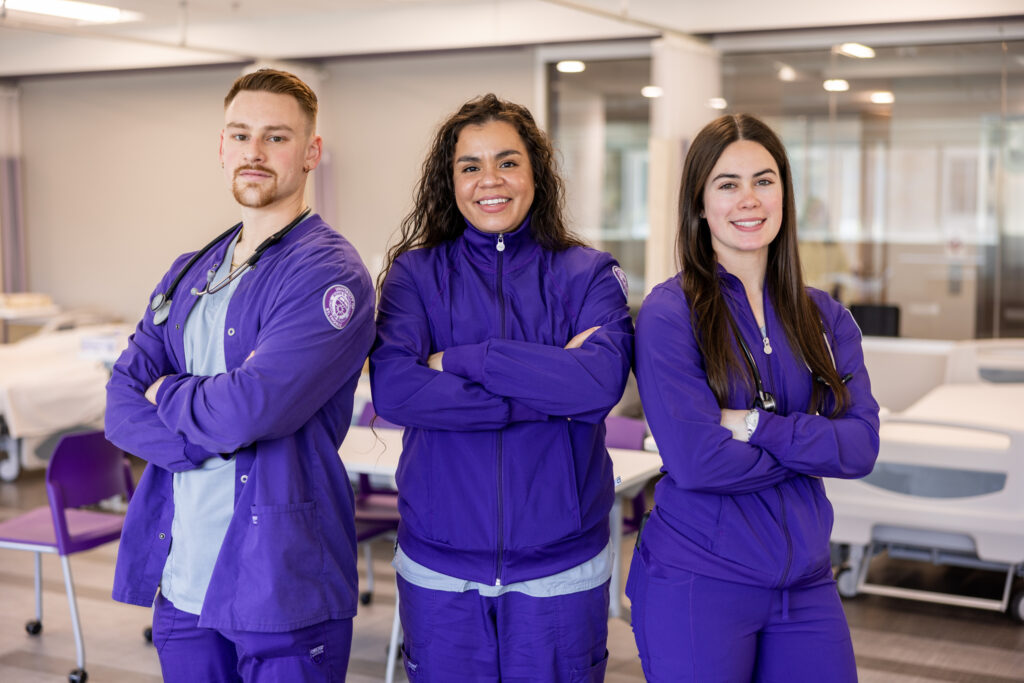When Megan Vaughan ’17 first enrolled in Dr. Lauren Braswell’s Counseling and Psychotherapy class the spring of her senior year, she was a bit nervous. As part of the course Vaughan and her classmates would spend 10 two-hour shifts volunteering with Regions Hopsital’s behavior health staff, working with patients experiencing significant mental health concerns.
Now, as a full-time employee in the same mental health department, it’s safe to say Vaughan did well to overcome any apprehension she had about her learning taking place in that kind of real-world setting.
“It was absolutely my favorite part of being a student at St. Thomas,” she said. “It’s one thing to learn about psychology reading textbooks … it’s another to go and visit with people who live with mental illnesses. There’s so much learning you need to do in the environment, and Dr. Braswell did such a good job of using what we were learning and bringing it back for discussions in the classrooms.”
Braswell’s course – which also won the 2017 Campus Compact President’s Community Partner award – is one of several academic community engagement courses coordinated through the university’s Center for Common Good. As St. Thomas’ Social Innovation Collaboratory transitions under the Center for Common Good as well, the courses are a growing list of examples of St. Thomas partnering with the community to enhance students’ education and have positive impacts.
“It’s cool to see this energy [around community engagement courses] that’s been here a while and been in pockets here and there,” said Kelly Sardon-Garrity, associate director of the Center for Common Good. “It’s cool to see those come out more. That’s emerging as a cool role our center can have, to highlight what’s going on and invite people into a One University effort, and highlight and support it. People can have access to the network and we can all support each other.”
That support will include a three-day workshop in May as faculty continue to develop more community engagement opportunities for their courses. There are plenty of examples to build on as, beyond Braswell’s course, recent courses have included:
- Susanne Wagner’s fall 2017 Introduction to German Studies course, which partnered with the Germanic-American Institute. Students documented life stories of significant institute members who immigrated to the United States around World War II.
- Kim Sovell’s fall 2017 Integrated Marketing Communications course, which partnered with the Minnesota AIDS Project and created marketing campaigns for MAP related to its merger with Rainbow Health.
- Two theology courses this semester, Theology 459 Theology and the Environment and Theology 101 Christian Theological Tradition, which partnered with Minnesota Interfaith Power and Light. Theology 459 students mobilized religious communities around renewable energy policies and advocate for policy change among lawmakers; Theology 101 students aimed to enlist at least 10 St. Thomas-affiliated households to commit to installing solar paneling on their homes, and will be hosting an event April 11 in the Anderson Student Center [create]space with information about the basics of solar energy, rebates/financial information and solar policy.
"The service learning aspect of the class has presented me and the students with a practical application of the material we have learned," said junior Eric Udermann, a member of the Theology 101 course. "The course began with addressing the various environmental issues we are facing, but instead of only hearing about the issues we have the chance to begin making change within our community."
Braswell had a similar community engagement course to the one she teaches now when she was an undergraduate, which has helped define her teaching role: Her course’s partnership with Regions is in its 17th year.
“It just adds this whole deeper level of meaning to the learning process. You know the learning from the head is also learning from the heart,” she said.
Braswell said a huge benefit of these types of courses are the opportunities they create for students to work in a professional field they may be interested in for a career – or they may figure out it’s not something for them.
“It’s huge,” she said. “Students do a lot of internships, but this is like pre-internship, putting your toe in not quite the same demanding way, but it’s a step in the direction you may want to go. It provides another window into the world.”
Many students have continued volunteering at Regions or even, like Vaughan, started working there.
“I loved the class experience of getting to work with people with mental illness. That’s become my passion,” Vaughan said. “I learned a lot about how to talk to patients, do motivational interviewing, appropriate ways of self-disclosure. The confidence was big; I felt so much more confident knowing … I can do this.”

